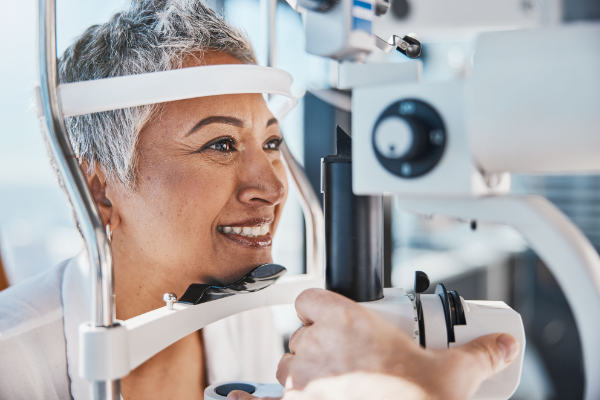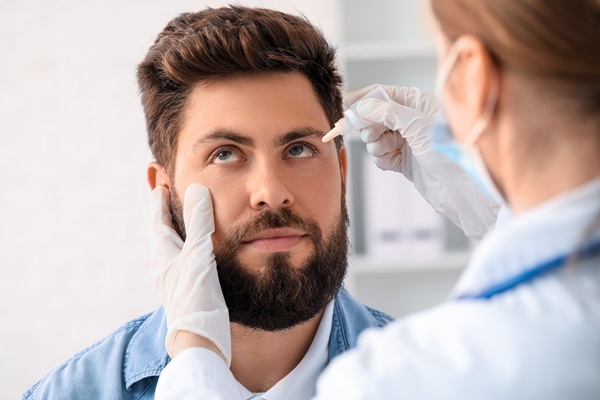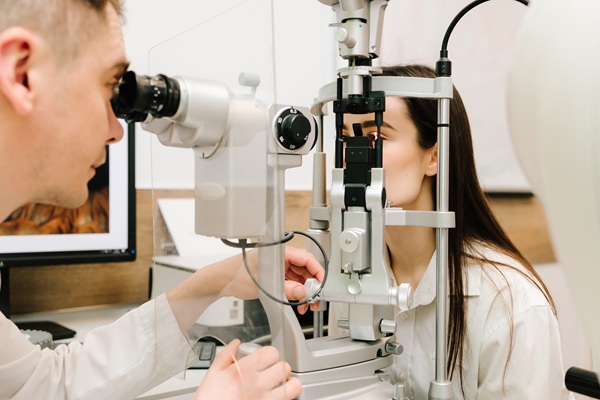The Importance of a Diabetic Eye Exam

Eye exams are the key to lasting eye health. This is particularly true if you have diabetes because of the risk of diabetic retinopathy, glaucoma, and cataracts. Diabetic eye exams are recommended for early detection of these eye diseases. Read on to learn more about the importance of diabetic eye exams in preserving vision and the eye's long-term health.
Why get an annual diabetic eye exam?
Getting a routine diabetic eye exam is crucial in preventing eye health from deteriorating. While every two years should suffice, it is best to receive an eye exam annually. This gives the optometrist a better chance to protect a patient's vision and provide minor corrections when necessary. Below are three reasons why diabetic patients should make sure to keep their eye exam appointments.
Prevent and treat common diabetic eye diseases
Diabetes brings the risk of several eye diseases that can result in vision changes and, unfortunately, vision loss. The most well-known is diabetic retinopathy, in which diabetes damages small blood vessels in the retina. Diabetes can increase one's risk of developing other eye diseases, such as:
- Cataracts: Cloudiness in the lens (the clear part of the eye), causing blurred vision, faded colors, night blindness, and other vision problems
- Glaucoma: A condition in which the pressure within the eye becomes unbalanced, leading to irreversible vision problems and potential blindness
- Retinal detachment: When the retina (the back of the eye) detaches from the eyeball, causing flashes and floaters in the vision and sometimes blindness
During a diabetic eye exam, the optometrist will conduct several tests to check the eye's health. This may include a pressure test and a dilated retinal exam, in which they dilate the pupil with eye drops to take a closer look at various internal structures of the eye. The optometrist can provide treatment recommendations if there are any signs of eye disease, which may help slow the progression of the disease and, ultimately, preserve vision.
Correct vision changes
Vision is liable to change regardless of whether an eye disease is present. An optometrist can correct a diabetic patient's vision through the use of prescription lenses or contacts. To find the right prescription, they will conduct a routine vision test using a Snellen chart. They can also conduct additional assessments to ensure an eye disease is not causing one's vision to change, providing the patient with peace of mind that there is no larger issue.
Keep an eye on overall health
It is common for high blood sugar, the hallmark of diabetes, to bring about blurred vision. Rapid changes in one's blood sugar levels may also cause this. However, this is not diabetic retinopathy or another eye-related disease; this is simply a side effect of diabetes. An optometrist will be able to assess the eye's health and see whether it is an issue with the eye or if the eye is acting as a window to one's overall health. Again, a dilated retinal exam may provide the answers to these questions.
Consult an optometrist
Protect the health of your eye with annual diabetic eye exams. Our optometrist will thoroughly assess every part of the eye to detect any issues. Call our office to schedule an appointment today.
Request an appointment here: https://brighteyesny.com or call Bright Eyes Optometry at (914) 730-9574 for an appointment in our New Rochelle office.
Check out what others are saying about our services on Yelp: Diabetic Eye Exam in New Rochelle, NY.
Recent Posts
Dry eye treatment can significantly improve comfort, vision, and overall quality of life for individuals dealing with this common yet often frustrating condition. Dry eye occurs when the eyes do not produce enough tears or when the tears evaporate too quickly, leading to symptoms such as burning, redness, blurred vision, and a gritty sensation. Effective…
Ophthalmologist and optometrists are two of the main eye care professionals. Both play an important part in helping you maintain the health and function of your eyes. However, while each type of eye doctor provides vision care, knowing the care you need can be confusing. Choosing the appropriate eye care provider depends on individual needs,…
Sunglasses have become a part of many people's wardrobes; however, they are also a great tool for protecting the eyes. Along with playing a large role in our daily lives, eyes are also sensitive to many things—sunlight being one of them. It is easy for one's eyes to sustain damage from direct sunlight exposure. Thankfully,…
A comprehensive eye exam does more than assess vision; it can also reveal early signs of various health conditions. Many systemic diseases affect the eyes before other symptoms appear, making regular exams essential to overall health care. Optometrists use advanced diagnostic techniques to detect conditions beyond vision problems, allowing for early intervention and treatment.Routine eye…


